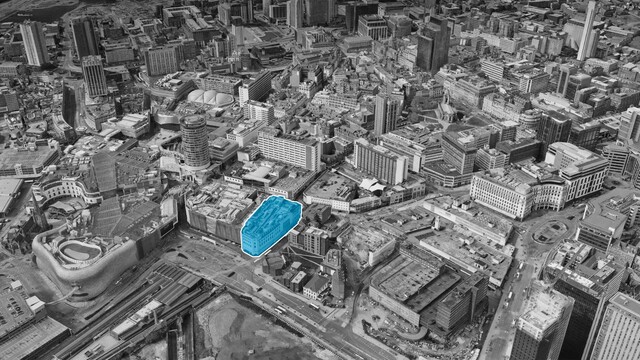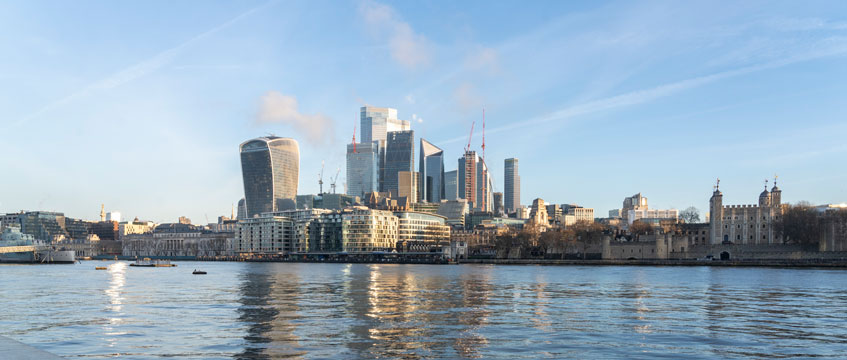Rayner steps in on City tower row
Deputy prime minister and secretary of state Angela Rayner has stepped in on a dispute over plans to build a 43-storey office block next to one of Britain’s oldest synagogues.
Rayner has instructed the City of London Corporation “not to grant permission without specific authorisation” for Welput’s planned 43-storey tower at Bury House, 31 Bury Street, EC3.
BentallGreenOak-backed Welput has been trying to push forward with the project since 2022, when a taller tower was recommended for approval. The firm resubmitted revised plans earlier this year.
Deputy prime minister and secretary of state Angela Rayner has stepped in on a dispute over plans to build a 43-storey office block next to one of Britain’s oldest synagogues.
Rayner has instructed the City of London Corporation “not to grant permission without specific authorisation” for Welput’s planned 43-storey tower at Bury House, 31 Bury Street, EC3.
BentallGreenOak-backed Welput has been trying to push forward with the project since 2022, when a taller tower was recommended for approval. The firm resubmitted revised plans earlier this year.
However, with the development just 25m away from the Grade I listed Bevis Marks Synagogue, it has faced strong opposition, with more than 1,340 objections lodged with the council.
Historic Buildings said the proposed tower would “profoundly harm the exceptional significance” of the synagogue; Historic England described it as “overbearing and overshadowing” and called for the plans to be withdrawn; while Sir Michael Bear, former lord mayor of the City of London, labelled the proposals “ridiculous” and totally unacceptable.
The scheme, which proposes 366,000 sq ft of new office space, is due to go back in front of the City’s planning committee on 13 December.
However, the City Corporation has now been informed that the Ministry of Housing, Communities and Local Government is considering requests from objectors to the scheme to call it in. As such, Rayner has issued a directive barring the committee from granting planning permission until the government has considered the case.
The order allows Rayner “to consider whether she should direct under Section 77 of the Town and Country Planning Act 1990 that the application should be referred to her for determination”.
The direction does not prevent the City of London from considering the application, forming a view as to the merits, or refusing permission at the 13 December planning committee, however.
Rabbi Shalom Morris of Bevis Marks Synagogue welcomed the intervention from Rayner.
“The future of Bevis Marks Synagogue is now very much on the national agenda, as befits its Grade I listed status and its historic role in British Jewry,” he said.
A spokesperson for Welput said the firm was “sensitive” to the concerns raised by Bevis Marks Synagogue.
“Our Bury Street project seeks to maximise public benefits by considering the future use of the entire site,” said the spokesperson. “This approach, focused on public benefit, is guided by a profound respect for the historic, heritage and cultural importance of the area around this site and we have developed our proposal with this context in mind.
Welput added: “Our sincere respect for the historical significance of the site has equally informed our revised approach to our development plan, where we have meaningfully reduced the height of Bury House and massing through a stepped articulation to the upper floors of the building.
“Our application is supported by detailed heritage assessments confirming the proposed restoration works to Holland House are acceptable and will provide significant benefits, delivering a highly sustainable listed building for the next 100+ years.”
The firm said it had made sure that its proposals for Bury Street were among the most sustainable for a heritage building within the City of London and that it had worked with more than 230 not-for-profit organisations to ensure a “fully developed social strategy” for the site.
With regard to the potential call in, Welput said it was “ready to present the compelling attributes” of its proposal to the secretary of state.
“It is our steadfast commitment to maintaining an open and cooperative dialogue with all community stakeholders, including the Bevis Marks Synagogue, and to continue exploring constructive solutions that bring this exciting, community-driven project to fruition,” said Welput.
DP9 is advising on planning. The scheme has been designed by Stiff + Trevillion Architects.
Image © Stiff + Trevillion Architects











